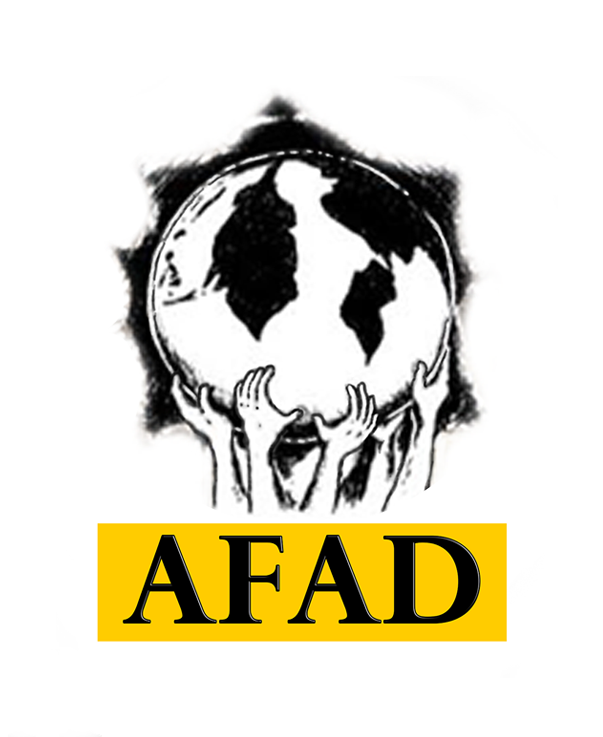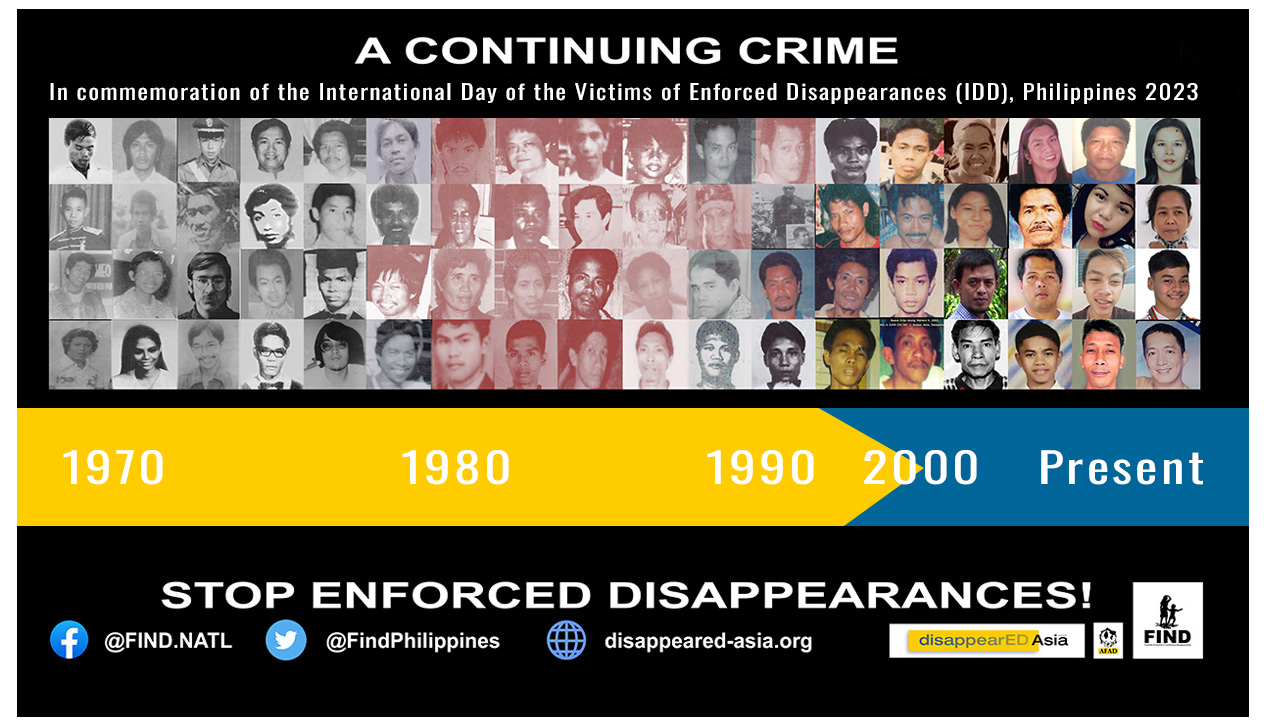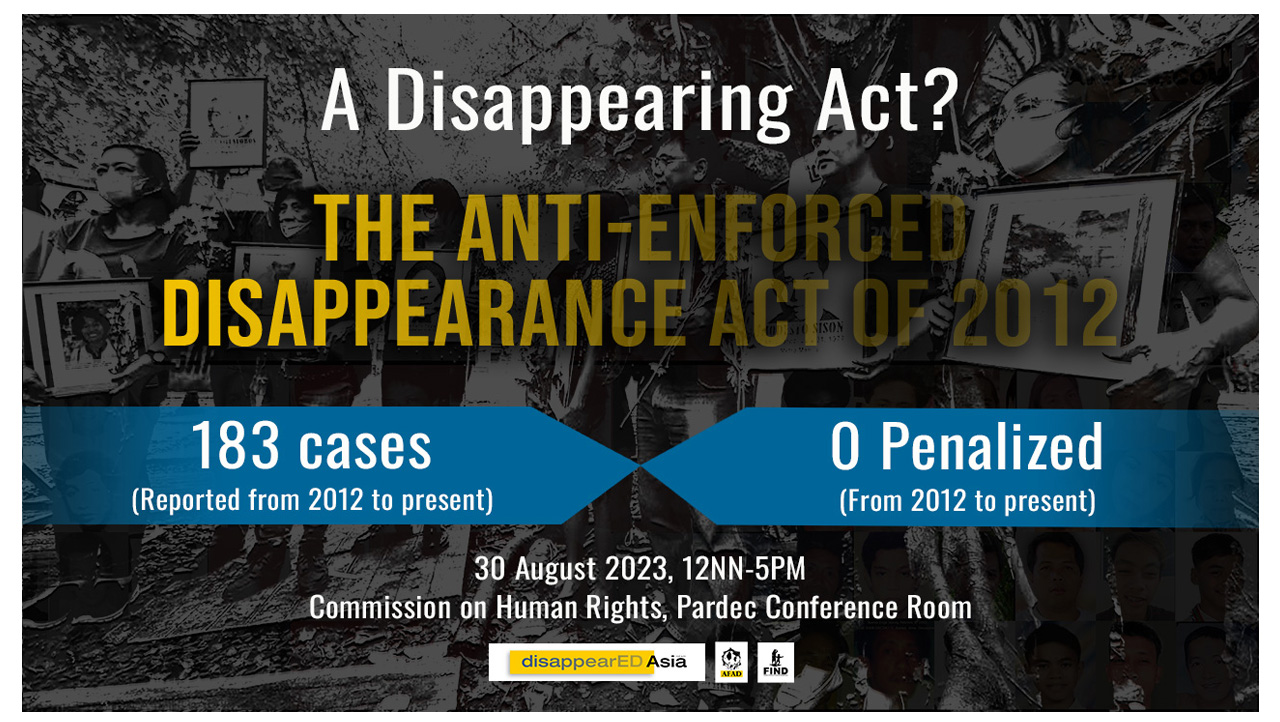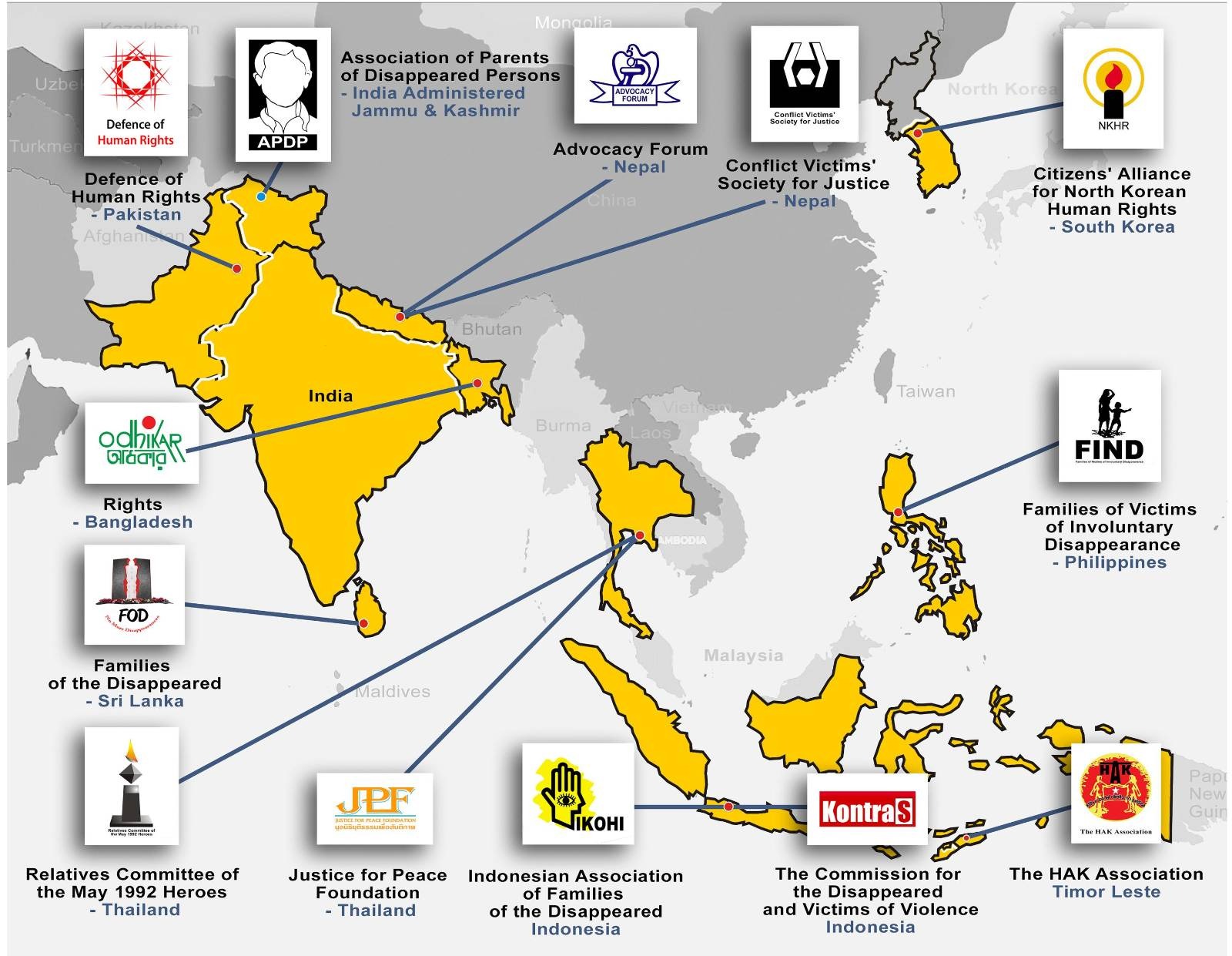What's Happening
AFAD Commemorates the International Women’s Day, 2018
As the world celebrates the International Women’s Day, the Asian Federation Against Involuntary Disappearances (AFAD) pays tribute to all women who have been relentlessly struggling for truth and justice. AFAD remembers the women victims of enforced disappearance – those who have been forcibly disappeared as well as those whose lives have been gravely affected by the phenomenon of enforced disappearance even as they continue to fight bravely against it.
APDP’s STRUGGLE FOR JUSTICE AFFIRMS TRUTH BEHIND ENFORCED DISAPPEARANCES
Press Release
28 February 2018
For twenty-four years, the Association of Parents of Disappeared Persons (APDP) and its individual members and volunteers have been campaigning against the phenomenon of enforced or involuntary disappearances in Jammu and Kashmir, wherein more than 8000 people have disappeared since 1989. The campaign has been to search and remember the disappeared, affirm the disappeared families’ right to know the truth, right to justice and reparations, and to demand that the government ratify and implement the International Convention for the Protection of All Persons from Enforced Disappearance.
Odhikar : Human Rights Monitoring Report - February 1 – 28, 2018
Executive Summary
The year 2018 is considered to be very significant year for Bangladesh as the 11th Parliamentary Election is likely to be held in December 2018. The Awami League led alliance government remains in power since 2009 and in the last 10 years, the government has made different, important government and independent institutions politicized and subservient to it. The Government unilaterally removed the Caretaker Government system in 2011, despite protests from the main opposition BNP, civil society and other political parties, without any referendum, through the 15th Amendment to the Constitution, which created a political crisis. Almost all political parties, including Bangladesh Nationalist Party (BNP) (except Awami League and its alliance) boycotted elections in protest of the removal of the caretaker government system; and the Awami League reassumed power for a second term through controversial and farcical Parliamentary Elections1 on January 5, 2014 and in doing so lost credibility.
Press Release, ADVOCACY FORUM - NEPAL
Press Release
17 February 2018
Maina Sunuwar’s Case: 14 years of Impunity
In April 2017, after a 13-year-long legal battle the Kavrepalanchowk (Kavre) District Court convicted three soldiers namely Babi Khatri, Sunil Prasad Adhikari and Amit Pun involved in the murder of Maina Sunuwar.1 While the Court acquitted a fourth soldier namely Major Niranjan Basnet, who is still serving the army, three were given sentence to 20 years’ imprisonment.
However, the Nepal army in September 2017 filed the petition in the Supreme Court to vacate the decision of the District Court. The army has claimed: (1) that the principle of double jeopardy was violated, on the argument that the army has already prosecuted the three convicted officers, (2) that the case comes under the jurisdiction of the Transitional Justice system rather than the criminal justice system, and (3) that as the incident took place under a military operation and therefore military rules should be applied. The petition also argues that all other conflict era cases should not be placed under the jurisdiction of the Court.

 Asian Federation Against
Asian Federation Against 

